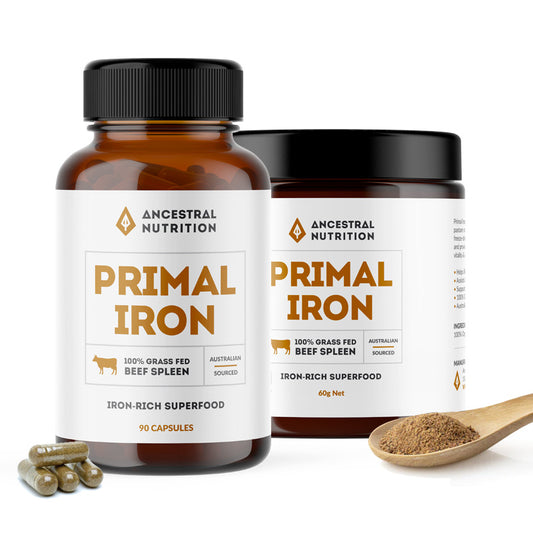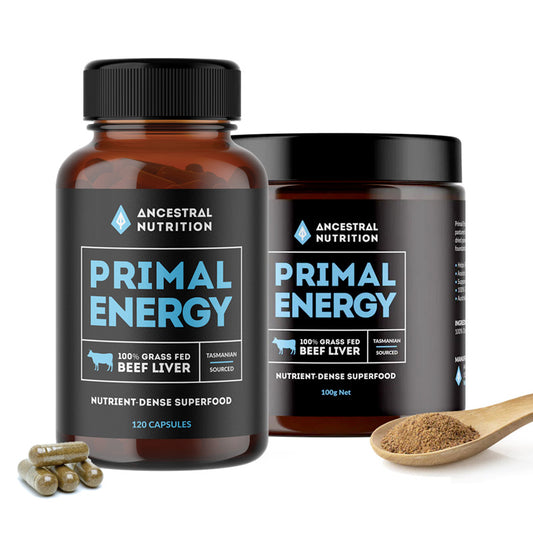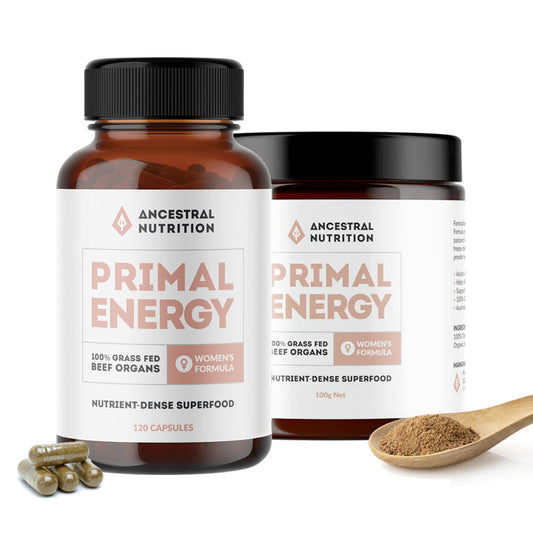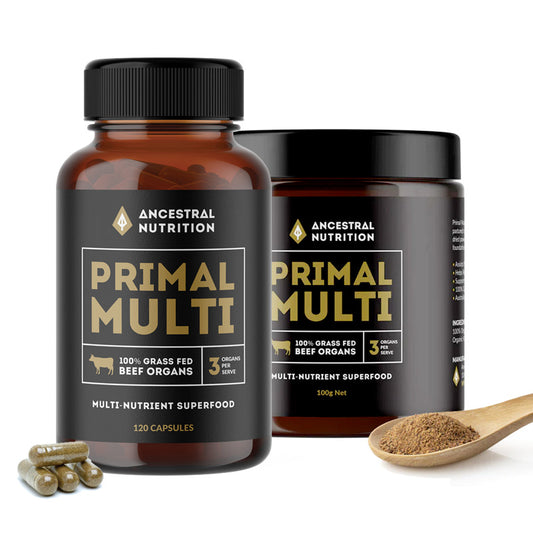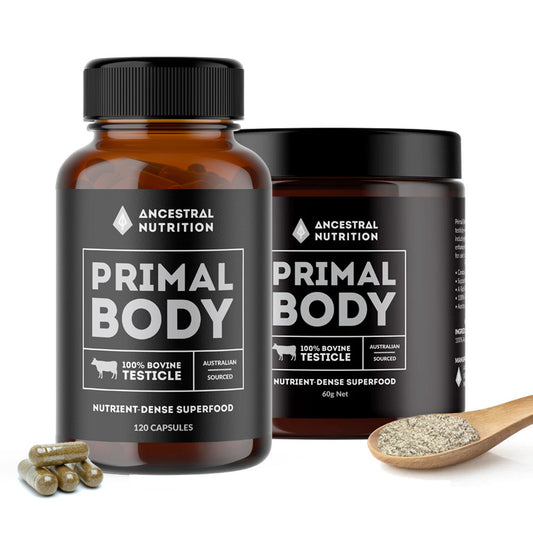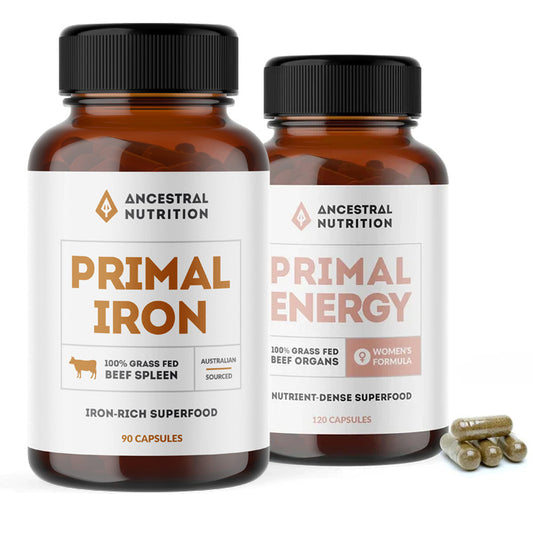Everyday Nutrients That Help Support Your Metabolism
article by Ancestral Nutrition

In the quest to maintain a healthy metabolism, it’s easy to be distracted by trendy diets or expensive “fat-burning” teas. But often, the most effective support for your metabolism comes from everyday foods already in your kitchen. This article explores the nutrients that help support your body’s natural metabolic processes and overall wellbeing.
Protein: The Building Block of Metabolism
Protein plays a foundational role in supporting your metabolism. Compared to fats and carbohydrates, protein requires more energy to digest, absorb, and utilise. This is known as the thermic effect of food, and it’s one way protein contributes to your body's overall energy use.
Good sources of protein include:
- Meat & Poultry
- Fish & Shellfish
- Dairy Products
- Eggs
Incorporating protein-rich foods into your meals may help support muscle health, satiety, and metabolic function as part of a balanced diet.
Fibre: The Digestive Dynamo
Fibre, the indigestible part of plant foods, helps regulate digestion and supports healthy blood sugar levels. This may indirectly support metabolic health by promoting steady energy and appetite regulation.
You’ll find fibre in:
- Vegetables
- Fruits
- Whole Grains
- Nuts & Seeds
A fibre-rich diet not only supports digestion but can also contribute to long-term wellbeing.
Healthy Fats: The Satiety Superstars
While trans fats and industrial seed oils should be limited, natural fats—such as saturated and monounsaturated fats—can be beneficial in the context of whole food diets.
Sources of natural fats include:
- Butter, ghee, or tallow
- Coconut oil or olive oil
- Nuts & seeds
- Avocados
- Eggs
These fats are essential for hormone production and help the body absorb fat-soluble vitamins like A, D, E, and K.
Iron: The Oxygen Carrier
Iron plays a role in transporting oxygen throughout the body, which is essential for supporting energy production. A lack of iron may reduce the body’s ability to maintain energy and oxygen use.
Beef organs—particularly spleen and liver—are rich in heme iron, the form most easily absorbed and used by the body. Including iron-rich foods in your diet may help maintain healthy iron levels.
B Vitamins: The Energy Supporters
B vitamins help convert the food you eat into energy the body can use. These water-soluble nutrients are involved in hundreds of metabolic processes.
Sources include:
- Eggs
- Fish
- Poultry
- Dairy
- Beef liver and other organ meats (especially high in B12, B6, and folate)
Getting enough B vitamins through diet helps support the body’s natural metabolic activity and energy function.
The Bottom Line
You don’t need to rely on extreme diets or synthetic supplements to support a healthy metabolism. Everyday nutrients—like protein, fibre, natural fats, iron, and B vitamins—play a key role in supporting the body’s natural energy and metabolic processes. Prioritising a varied, nutrient-dense whole food diet is one of the simplest ways to care for your metabolic health.
How to Supplement with Freeze-Dried Beef Organs
If you're looking for a whole food, bio-available source of iron, B vitamins, and other naturally occurring nutrients, desiccated beef organ supplements may be worth considering.
Beef organs are among the most concentrated sources of nutrients found in nature—including vitamins, minerals, healthy fats, and essential amino acids.
Our Primal Multi Beef Organ supplements are:
- 100% hormone-, antibiotic-, and GMO-free
- Tasteless and easy to take
- Freeze-dried to preserve nutrients
- Sourced from 100% grass-fed and grass-finished cattle from the pristine pastures of Tasmania
Find Out More About Beef Organs Here.

